MercoPress. South Atlantic News Agency
Latin America
-
Tuesday, September 23rd 2014 - 11:11 UTC
Rousseff's government denies Brazil has any 'imperial' intentions
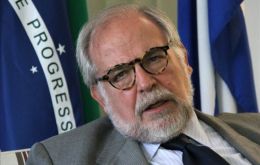
President Dilma Rousseff's main foreign affairs' advisor Marco Aurelio Garcia denied Brazil has any “imperial intentions” in reply to claims relative to Cuba from presidential opposition candidate Marina Silva.
-
Tuesday, September 23rd 2014 - 04:56 UTC
“Just you wait; I'm coming” president Maduro tells US main newspapers

Venezuelan leader Nicolas Maduro has said he will travel to New York this week for his debut appearance as president at the United Nations General Assembly despite “racist” editorials against him in major US newspapers.
-
Monday, September 22nd 2014 - 04:44 UTC
Cristina Fernandez to address the UN General Assembly on Wednesday
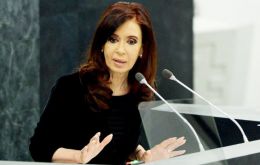
Following her meeting with Pope Francis at the Vatican, Argentine President Cristina Fernandez arrived in New York, where she is expected to deliver a speech at the UN’s 69th General Assembly on Wednesday.
-
Monday, September 22nd 2014 - 04:16 UTC
Mujica brags on foreign policy; Latam ready to play a larger role in peace issues, Europe has lost clout

Uruguay's president Jose Mujica said the latest world events show that Europe 'has lost clout' in global affairs, and has lost strength as 'peace mediator', and this role could be “much better performed by Latin America”.
-
Saturday, September 20th 2014 - 09:26 UTC
Samper in Argentina updates Unasur agenda with Timerman

Unasur Secretary General Ernesto Samper in his first overseas official trip this week visited Argentina, where he met with President Cristina Fernandez and foreign minister Hector Timerman, and also held a round of political talks and other ministerial meetings.
-
Friday, September 19th 2014 - 07:09 UTC
South Atlantic whale sanctuary rejected at the IWC meeting
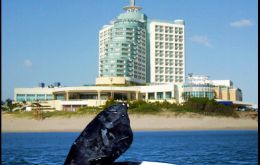
The world's whaling watchdog rejected a bid to expand protection in the South Atlantic. The issue were put to a vote on the closing day of the International Whaling Commission's (IWC) 65th meeting in Slovenia.
-
Thursday, September 18th 2014 - 05:51 UTC
OAS observers for Peru's regional and municipal elections on 5 October
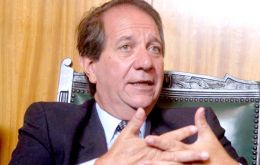
The Organization of American States (OAS) and Peru´s National Elections Jury (JNE) signed the Agreement on the Electoral Observation Process of the Mission that the OAS will deploy in the country to observe the regional and municipal elections to be held on October 5.
-
Tuesday, September 16th 2014 - 05:20 UTC
Santander new chairwoman confirms full control of the Brazil branch
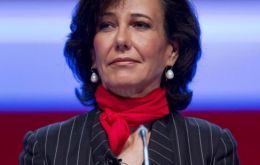
Spanish banking giant Santander under its new executive chairperson Ana Botin announced on Monday the purchase of the remaining 25% of Banco Santander Brasil which it did not already own.
-
Monday, September 15th 2014 - 05:07 UTC
Free fall for Cristina Fernandez with record negative image and support
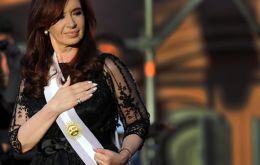
The negative image of Argentine president Cristina Fernandez climbed this month to 43.8%, the highest since last May, according to the latest release of the Management & Fit public opinion polls, published in the Buenos Aires media.
-
Saturday, September 13th 2014 - 05:13 UTC
Venezuela quietly working to ensure a seat at the UN Security Council
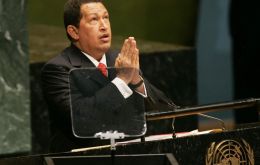
Venezuela’s populist government has quietly secured the backing of Latin America and the Caribbean to obtain a diplomatic trophy that long eluded the late Hugo Chavez: a seat on the United Nations Security Council.
